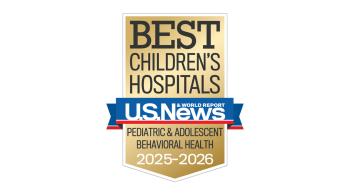The Brief Treatment Clinic at Kennedy Krieger Institute is a unique and condensed assessment and treatment process designed to reduce challenging behaviors and increase skills utilizing Applied Behavior Analysis (ABA), an evidence-based therapy.
Our Approach
The Brief Treatment Clinic offers children and caregivers intensive, short-term therapy with our team of behavioral psychologists. Behavioral assessments and treatments are individualized to improve child and family functioning quickly and meaningfully. All treatment programs include:
- Assessing for potential triggers in the environment that may cause challenging behavior.
- Creating treatment plans to reduce behavioral challenges and reward appropriate choices.
- Ongoing monitoring of treatment outcomes to ensure long term success.
Conditions We Treat
Among the most commonly addressed treatment targets include:
- Tantrums
- Aggression
- Elopement
- Noncompliance
- Mild Self-Injury
- Toileting Problems
- Destructive Behaviors
- Poor Impulse Control
- Habit Behaviors (tics, hair pulling)
- Selective Mutism
- Motor and Vocal Stereotypy
Our Services
Caregiver participation and training is a critical part of the brief treatment clinic; children learn new skills alongside the important adults in their lives. The Brief Treatment Clinic provides the following services:
- Intensive Treatment Program: The Intensive Treatment Program provides outpatient behavioral services to patients and their families on a condensed schedule. Patients are seen for two hours per day, five days per week, for two consecutive weeks. The number of hours of therapy per week is equivalent to that received during a regular outpatient course of therapy; however, these services are provided with the client and their caregivers in a condensed format. As with other programs within the clinic, active caregiver participation is required for the duration of the treatment process. Following the intensive portion of the program, the individual receives follow-up services to monitor maintenance of treatment gains.
- Day Treatment Program: For those patients in need of longer-term services, this program provides behavioral assessment and treatment services in the clinic on a weekly basis for four hours per week. The typical patient in this program is seen two hours per day, two days per week for five weeks.
- Follow-up Program: After patients are discharged from either the Intensive or Day Treatment Program, they are eligible to receive continued service in the Follow-up Program. These appointment types vary depending on the needs of the family, but scheduling typically focuses on monthly sessions to ensure long-term maintenance of skills.
Related Materials and Information
Contact Us
- To apply for our services, visit our Brief Treatment Clinic.
- Questions? For more information or to schedule an appointment, call a care specialist at 443-923-7508 or email BehaviorPsychBTI@KennedyKrieger.org.




